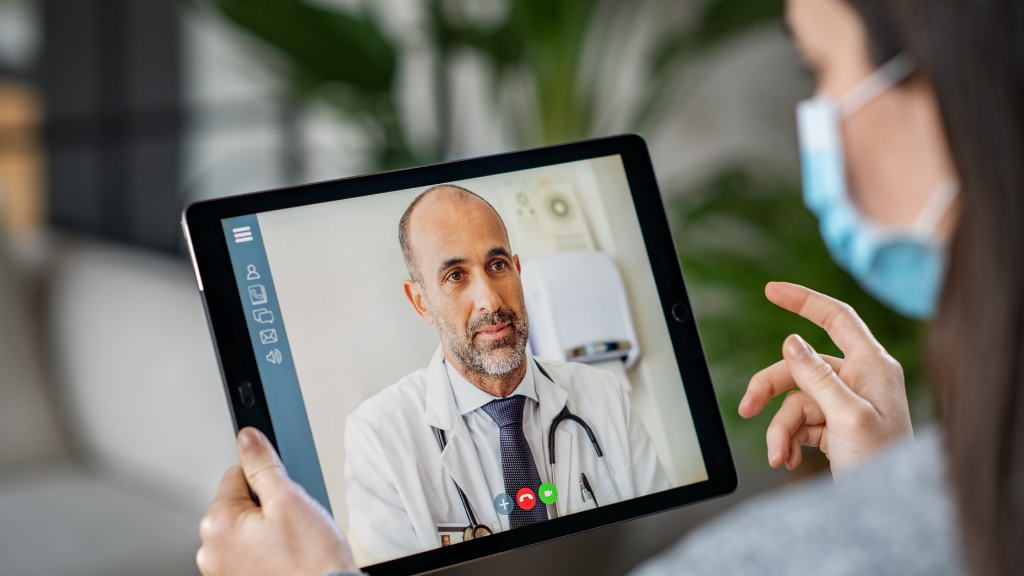Predictions for NHS Patient Care: Enhancing the Experience
6 minute read | 31/01/2024

Discover the exciting possibilities that lie ahead for patient care within the NHS as we delve into the upcoming enhancements and predictions that will shape the future of healthcare. Join us on a journey of exploration as we uncover the innovative technologies and strategies that will revolutionise the healthcare experience.
- The Role of Technology in Patient Care
- Transforming Communication Platforms
- Personalised Healthcare for Every Patient
- Promoting Collaborative Care
- The Benefits of an Improved Patient Experience
The Role of Technology in Patient Care
In 2024, technology will play a crucial role in transforming the patient experience within the NHS. With advancements in digital health, patients can expect to see innovative solutions that streamline their care journey. One significant prediction is the widespread adoption of telemedicine, allowing patients to access medical professionals remotely. This will not only improve convenience but also reduce the strain on healthcare facilities and provide timely care to those who may have difficulty accessing in-person appointments. This struggle is prevalent in rural areas such as Scotland.
The use of Video conferencing in healthcare is rapidly advancing, providing a valuable solution to expedite healthcare services within hospitals. This innovative technology not only addresses issues such as bed blocking and delayed discharge but also significantly reduces the need for clinicians and consultants to travel between different sites, resulting in substantial time and cost savings for NHS Trusts. Video conferencing can be conveniently accessed via mobile devices, desktop computers, room-based video systems, and state-of-the-art Bedside Units, among other options.
Overall, technology will revolutionise the patient experience within the NHS, empowering individuals to take control of their health and receive timely, personalised care.
Transforming Communication Platforms
Communication is a vital aspect of patient care, and in 2024, the NHS will witness a transformation in communication platforms. Traditional methods such as phone calls and face-to-face interactions will be complemented by digital solutions that enhance accessibility and convenience.
One prediction is the widespread use of secure messaging platforms that allow patients to communicate with healthcare professionals directly. This will enable quick and efficient communication, reducing the need for unnecessary appointments and improving patient satisfaction. App providers such as Patient’s Know Best provide a secure messaging service that patients and healthcare professionals can use to communicate. No more waiting in a call que to amend an appointment or go through a long process to get an update.
Virtual consultations will also become more prevalent, enabling patients to consult with healthcare professionals remotely. This will eliminate geographical barriers, reduce waiting times, and provide patients with the flexibility to seek medical advice from the comfort of their homes. In many cases, this is encouraged over in person visits, especially after the pandemic.
Personalised Healthcare for Every Patient
The NHS is working towards making personalised care ‘business as usual’ for 2.5 million people by 2024. Personalised care takes into account patient’s unique needs and preferences. This prediction stems from the increasing recognition of the importance of individualised care in achieving better health outcomes.
One way this will be achieved is through the use of genomics and precision medicine. Genetic testing will become more accessible, allowing healthcare professionals to tailor treatment plans based on an individual's genetic profile. This targeted approach will optimise the effectiveness of treatments and minimise adverse reactions.
Additionally, advancements in data analytics and electronic health records will enable healthcare professionals to gain a comprehensive understanding of each patient's medical history, preferences, and previous treatment outcomes. This holistic view will inform personalised care plans and empower patients to actively participate in their healthcare decisions.
Promoting Collaborative Care
Collaborative care is a key component of an effective healthcare system, and in 2024, the NHS will prioritise promoting collaboration among healthcare professionals. This prediction arises from the recognition that multidisciplinary teamwork leads to better patient outcomes and improved care coordination.
promoting collaboration among healthcare professionals. This prediction arises from the recognition that multidisciplinary teamwork leads to better patient outcomes and improved care coordination.
One way collaborative care will be promoted is through the implementation of integrated electronic health records. This will enable seamless sharing of patient information among different healthcare providers, ensuring that everyone involved in a patient's care is well-informed and can make informed decisions. Patient involvement will be central to collaborative care. Patients will be encouraged to actively participate in their care planning and decision-making, with healthcare professionals serving as guides and partners.
The Benefits of an Improved Patient Experience
All of the features above will cost the NHS when they are already strapped for cash. Why should investments be made to improve the patient experience compared to more staff or medical equipment? It is argued that a hospital is where people go to get better and heal, not somewhere to relax.
There is a link between a positive patient experience, better health outcomes and cost of care. Combining a positive patient experience with high patient engagement will bring further benefits to speed up care and reduce re-admissions. Technology will help tackle NHS pain points and bring about much needed relief to the UK’s stretched healthcare service.
An improved patient experience within the NHS will bring several benefits to both patients and healthcare providers. Firstly, enhanced patient satisfaction will lead to increased engagement and adherence to treatment plans. It has been documented that when patients feel valued and involved in their care, they are more likely to follow medical advice and make positive lifestyle changes. Other publications such as the National Library of Medicine state that ‘early detection in cancer presents notable benefits as it enables timely intervention, expands treatment possibilities, enhances survival rates, reduces treatment intensity and costs, improves quality of life, facilitates personalized care, and increases the likelihood of a cure.’
Furthermore, a positive patient experience will reduce the burden on healthcare facilities. With streamlined processes, reduced waiting times, and efficient communication, healthcare providers can optimise their resources and focus on delivering high-quality care.
An improved patient experience will lead to increased patient satisfaction, better health outcomes, and more efficient healthcare delivery.
About the author
Rebecca O'Donovan
Becky is the Marketing Director at SPARK TSL, of whom she has worked for since 2012. She is responsible for high-level marketing strategy focusing on lead generation and aiding the vision of the business to ensure business growth.
More articles by the author
Related articles
 Patient Experience
Patient Experience
How To Improve Patient Experience: Trends for 2024
The healthcare industry never stands still. New challenges, opportunities and capabilities are always ...
 Healthcare Industry
Healthcare Industry
How to Provide a Safe and Positive Experience for Patients
The way care is provided to patients is changing. As set out in the NHS Long-Term plan, major changes are ...
 Patient Experience
Patient Experience
Upgrading Your Patient Entertainment and Engagement System
Why is patient entertainment and engagement important? Patients without access to entertainment systems are ...


